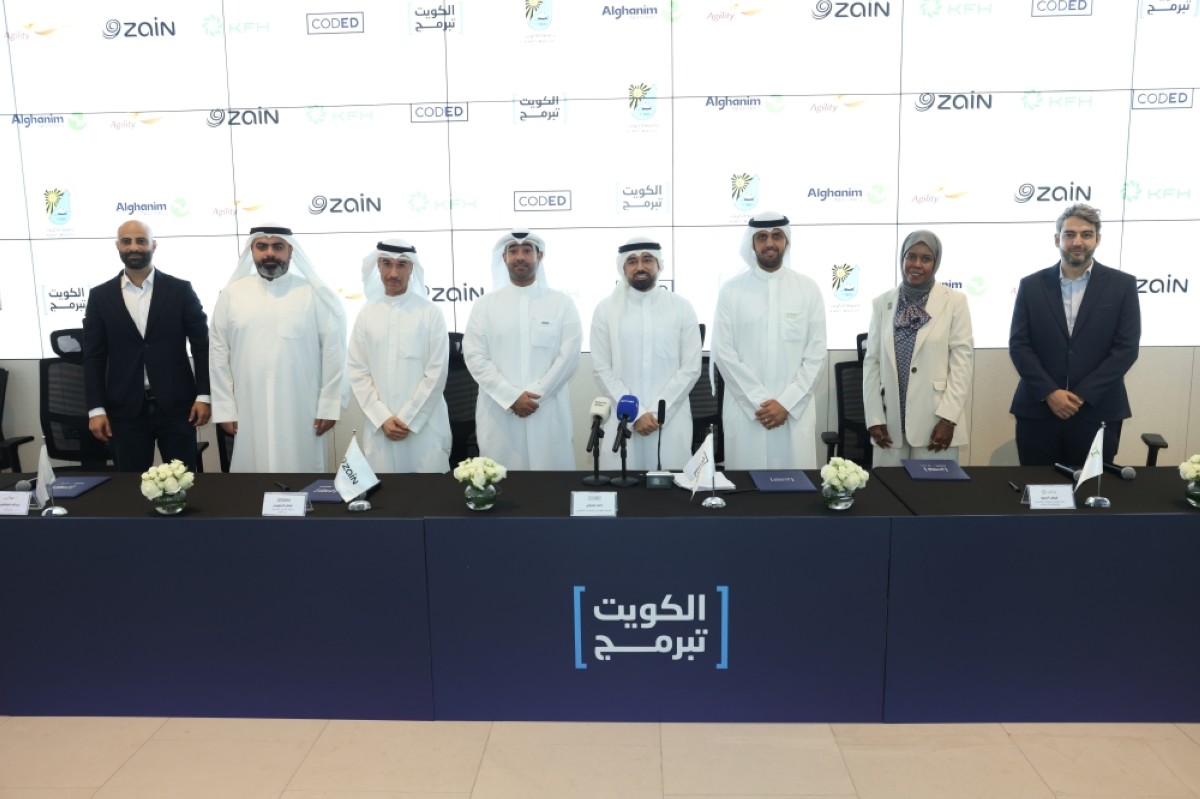KUWAIT: Coded launched the fifth edition of Kuwait Codes on Thursday, an initiative that has been running for over four years, aimed at equipping Kuwaiti youth with essential programming skills. On the sidelines of the press conference hosted at Kuwait University, Ahmad Maarafi, co-founder and CEO of Coded, told Kuwait Times about the program’s impact on nurturing young talent and preparing them for the evolving job market. “As we start the fifth year, our goal is to train 1,000 students, including high school students and ninth graders, with the skills needed to thrive in the digital era.”
Maarafi underscored the rapid advancements in AI and the necessity for Kuwaiti youth to stay ahead of global trends. “If we do not keep up with these technological advancements, we risk falling behind both regionally and internationally. Our students are full of creativity and potential; all they need is an opportunity. This is precisely what we offer through this program.” The program continues to attract students from diverse academic backgrounds, including medicine, engineering, and design, reinforcing the idea that coding and AI are not confined to the tech industry but are becoming essential across all fields.
Strategic partnerships
Dr Hanadi Abdelsalam, Assistant Dean for Academic Affairs and Research at Kuwait University, expressed the university’s pride in hosting and supporting the initiative. “Kuwait University is always delighted to facilitate community-driven programs like ‘Kuwait Codes.’ Our role is to provide space, infrastructure, and resources to support both trainers and students,” she said. This year, Abdelsalam added, the initiative is being hosted at the College of Life Sciences, reflecting the university’s commitment to rotating the program across various faculties.
Faisal Duwaihees, Head of Corporate Relations at Zain Kuwait, reiterated the company’s commitment as a strategic partner of Coded. “We at Zain are proud to support ‘Kuwait Codes’ in its new season. Over the past four editions, more than 3,500 students have benefited from this initiative. As a leading digital service provider, it is our duty to empower Kuwaiti youth with the necessary technological skills for the future job market.” Duwaihees detailed Zain’s multi-faceted support, which includes financial assistance, media outreach, and hosting workshops. “Our partnership with Coded aligns with Zain’s sustainability strategy, which prioritizes education and youth development. By supporting ‘Kuwait Codes,’ we are actively investing in the future of Kuwait’s digital economy.”
Media support
Hussain Sana, a content creator at Kuwait Times and Kuwait News, highlighted the natural synergy between the media and initiatives like ‘Kuwait Codes.’ “Our sponsorship of Coded is organic, natural, and genuine because both of our organizations are run by young professionals. Our management teams are in their 30s and 40s, and we both focus on empowering young people.” He further emphasized the shared values between Kuwait Times and Coded. “We align in our goals and our drive for quality rather than purely commercial results.
‘Kuwait Codes’ plays a crucial role in rallying and mobilizing young people interested in technology, coding, and programming. This, in turn, contributes to building a future workforce that supports the growth and diversification of Kuwait’s economy.” Sana also reflected on how initiatives like ‘Kuwait Codes’ benefit media institutions. “Even though we are in different industries, we share the same values and aspirations for Kuwait’s development.”
A forward-looking initiative
This year’s edition of ‘Kuwait Codes’ is set to introduce more AI-focused content, reflecting the global shift toward intelligent technologies. “Compared to last year, AI tools have evolved significantly. Countries like China are pushing the boundaries of AI development, and our role is to equip Kuwaiti students with the right foundation to harness these technologies for their future careers,” Maarafi noted. Several other prominent organizations, including Agility, Kuwait Finance House (KFH), and Alghanim Industries, have joined as partners in this year’s edition. Representatives from these companies expressed their pride in being part of an initiative that empowers the next generation with vital digital skills.


















